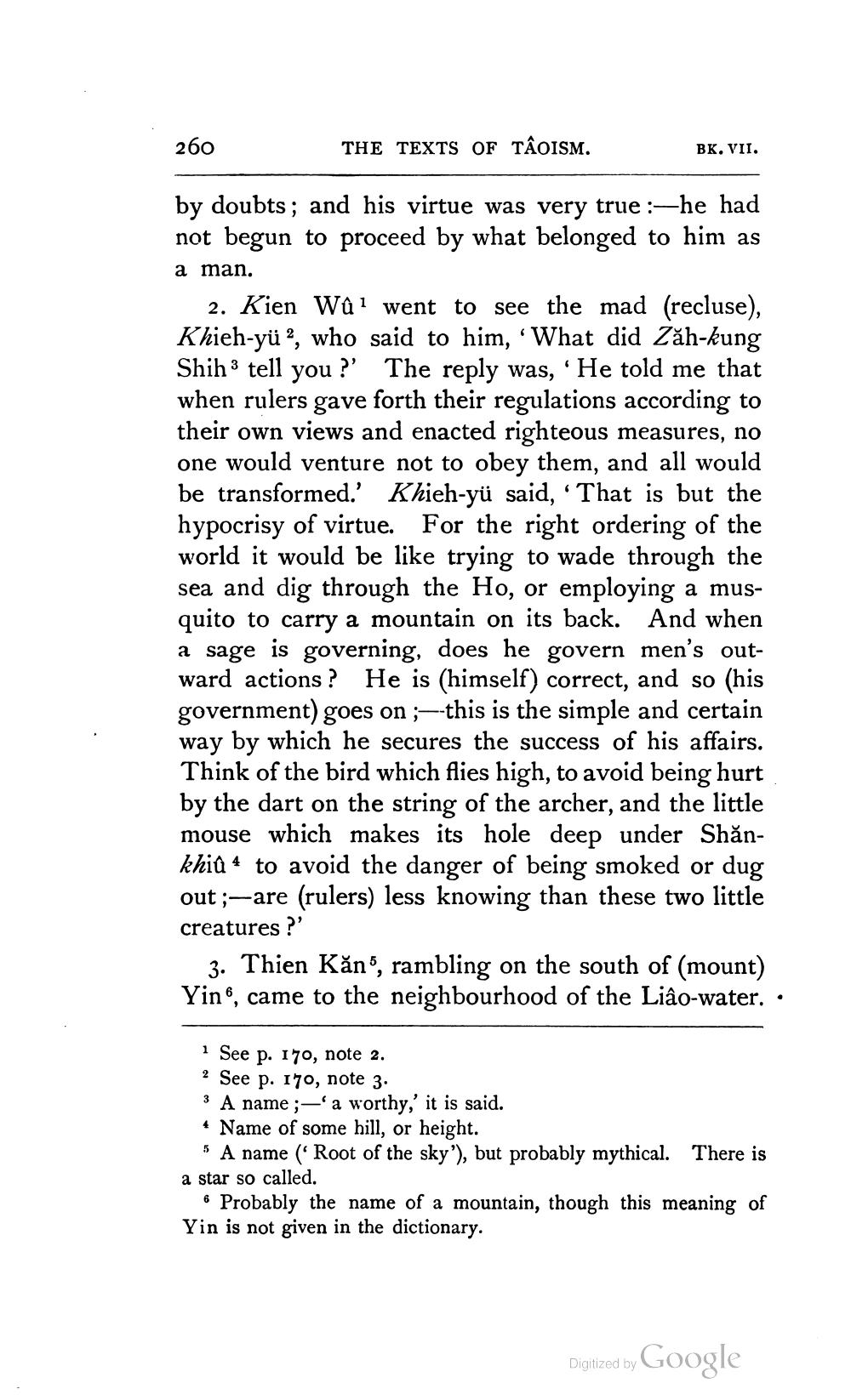________________
260
THE TEXTS OF TÂOISM.
BK. VII.
by doubts; and his virtue was very true :-he had not begun to proceed by what belonged to him as a man.
2. Kien Wùi went to see the mad (recluse), Khieh-yü ?, who said to him, 'What did Záh-kung Shihtell you ?' The reply was, 'He told me that when rulers gave forth their regulations according to their own views and enacted righteous measures, no one would venture not to obey them, and all would be transformed.' Khieh-yü said, “That is but the hypocrisy of virtue. For the right ordering of the world it would be like trying to wade through the sea and dig through the Ho, or employing a musquito to carry a mountain on its back. And when a sage is governing, does he govern men's outward actions ? He is (himself) correct, and so (his government) goes on ;- this is the simple and certain way by which he secures the success of his affairs. Think of the bird which flies high, to avoid being hurt by the dart on the string of the archer, and the little mouse which makes its hole deep under Shănkhiù 4 to avoid the danger of being smoked or dug out;-are (rulers) less knowing than these two little creatures ?'
3. Thien Kăn", rambling on the south of (mount) Yine, came to the neighbourhood of the Liâo-water. •
See p. 170, note 2. 2 See p. 170, note 3. 3 A name ;-'a worthy,' it is said. * Name of some hill, or height.
5 A name ('Root of the sky'), but probably mythical. There is a star so called.
6 Probably the name of a mountain, though this meaning of Yin is not given in the dictionary.
Digitized by Google




